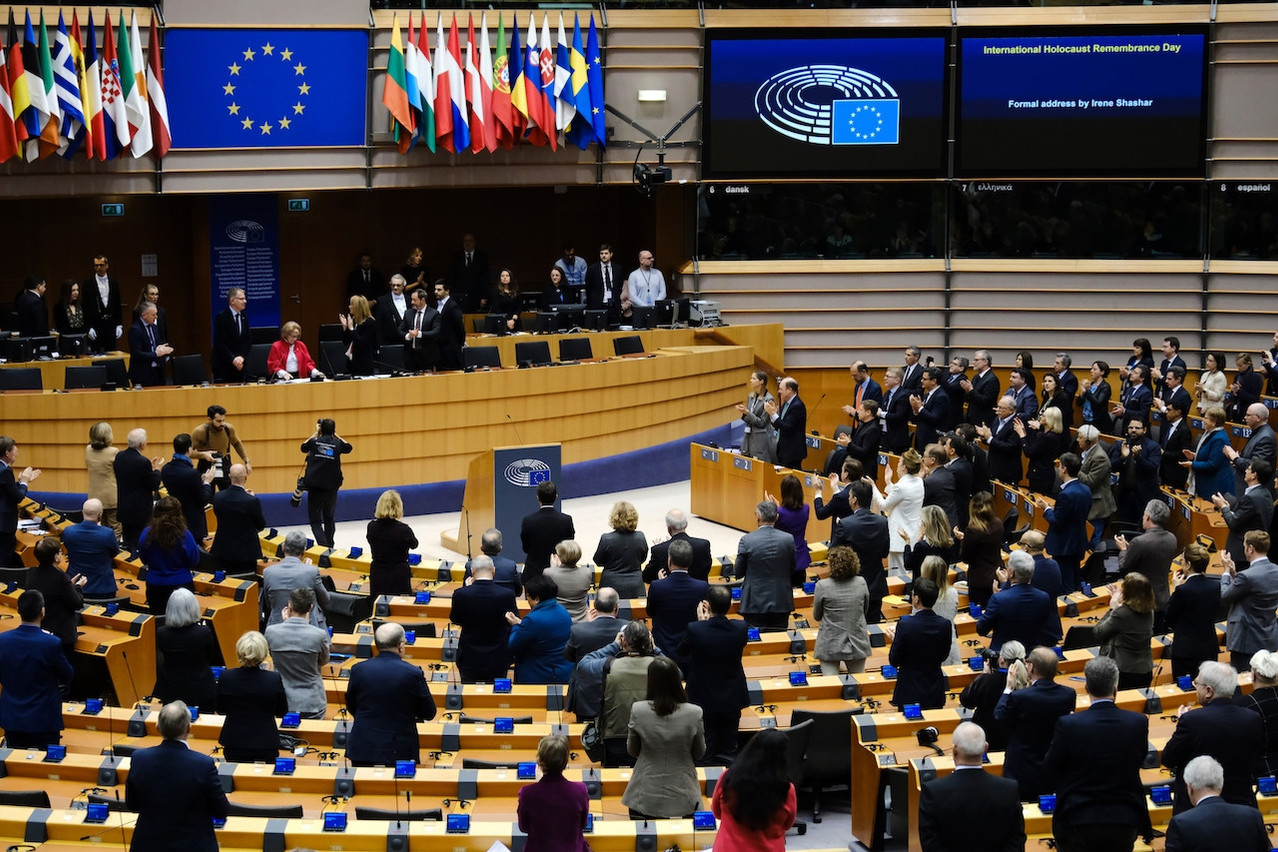In the crosshairs of the budget committee, which drafted this resolution, is the current ceiling of 1% of the EU-27’s gross national income, which is deemed insufficient. They would like to see this ceiling increased, if necessary by resorting to debt, which they consider a viable option. This recourse is currently outlawed by the EU Treaties, but the European Commission resorted to this path--with the backing of member countries--during the covid crisis.
This resolution, adopted by 317 votes in favour, 206 against and 123 abstentions, is a political act that is not binding, but which opens negotiations on the multiannual financial framework (MFF) for the period 2028-2034. The MFF sets out the provisions that the European Union’s annual budget must respect, in particular the spending ceilings for the main categories of the budget. The budget committee would like to see these categories adapted to make room for the two current political priorities of defence and competitiveness. This would not, however, call into question the funding of the EU’s other priorities, such as cohesion policy and social and environmental spending.
On 16 July, the European Commission will present its proposals for the future of the MFF. These proposals will include figures. Negotiations with member states will then begin.
The need to increase own resources
If the majority--formed by the four europhile parties (EPP, S&D, Renew and Greens)--is calling for an increase in the size of the EU budget beyond the historic limit of 1% of the EU’s gross national income, no figure has been put forward, a sign of disagreement amongst MEPs. This increase in the budget will have to be achieved through the creation of new own resources and possibly through recourse to debt.
(déi Gréng/Greens/EFA) criticised the vague nature of the resolution on own resources. “Own resources must be increased in order to strengthen the European Union in the areas of social affairs, cohesion, food security, the fight against poverty, housing, humanitarian aid, biodiversity and the fight against climate change, and to meet future challenges.” How can this be done? She mentions the possibility of taxing financial transactions. The corollary to the increase in own resources is greater recourse to borrowing. However, the MEP is not convinced by this approach, which she sees as a strong risk of justifying austerity policies for the future.
For (LSAP/S&D), “the current structure of the MFF is no longer adapted to the challenges posed by a changing world requiring a strong common European response.” He called for the framework to be restructured. Restructuring should involve raising “the self-imposed and highly restrictive expenditure threshold of 1% of EU GNI. The next MFF also needs to be simplified and made more transparent. The current MFF has lacked flexibility and has therefore not been able to adapt to changing spending priorities, so progress should be made towards built-in flexibility and reform of the existing special instruments to ensure an effective and rapid EU response in terms of capacity.” He argues for the creation of new own resources for the European Union and suggests taxes on financial transactions, corporate windfall profits, or large fortunes.
Recourse to debt dividing line between pro-Europeans and populists
With regard to recourse to debt, he believes that joint borrowing should be an option to ensure that the European Union has sufficient resources to respond to acute crises at EU level, not only in the field of defence, but also in other priority areas such as the green transition. In addition, the European Parliament should be fully involved in the event that new joint borrowing is envisaged, in full respect of its roles as legislator, budgetary authority and discharge authority.
MEP (CSV/EPP) does not rule out a recourse to borrowing. But for her, recourse to debt should only be made with an eye to the future and for vital reasons, as was the case during the covid-19 pandemic or to finance forward-looking projects (technological, ecological), or potentially for defence and security. Investing in defence is vital if we are to continue to live freely and democratically. As for own resources, she is in favour of increasing them.
For (DP/Renew), the biggest problem with the European budget is “the lack of resources and the lack of ambition to explain to our public why the European budget is essential. Those who are familiar with the problem know that money invested through European budgets is in principle much more effective than money invested at national level.” He is in favour of increasing own resources. “In the absence of sufficient own resources, the EU budget remains dependent on the goodwill of the member states, many of which are frugal, stingy or frankly anti-European,” he explains. And given the needs, particularly in terms of defence, he is not opposed to a Europe-wide debt. He even considers it inevitable.
For (ADR/ECR), there is no question of using debt to finance the European budget. “This is not provided for in the treaties. What we did with NextGen EU is totally illegal. We have to fight this tendency to take on more and more debt to finance European policies.” The ADR MEP goes further: “I believe that own resources should be abolished and that the European Union and the commission should become totally dependent on member states. The commission should ask the national states for resources for programmes, which the national states would then have to grant or not.”
This article was originally published in .
